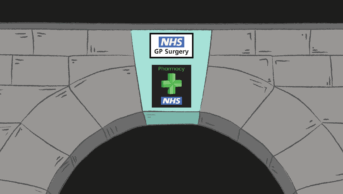
Shutterstock.com
Community pharmacies in England could offer routine contraception monitoring, and sore throat testing and treatment, as part of services currently under development, the government has confirmed.
This comes as pharmacy negotiators are currently in discussions over the community pharmacy contractual framework for 2021/2022.
Both services are now included in updated data standards, which — when implemented by IT system suppliers — will enable pharmacy staff offering these services to digitally update GP records with advice given or medication prescribed.
In developing the standards, the Professional Record Standards Body (PRSB) said in a report that it met with 62 clinical and health service stakeholders to discuss “data items required to support” specific pharmacy services.
The services discussed with stakeholders included a “contraception monitoring service”, which is in the early stages of development and “was concerned with ensuring access to, supply of, and monitoring of, routine contraception through community pharmacies”, the report said.
“Initially, this would be about supplying and monitoring the use of contraceptive pills,” the report stated, adding that “risks of contraceptive use would be assessed using the United Kingdom Medical Eligibility Criteria”.
“This assessment is about the assessment of clinical risks rather than specifically the risks of supply. It was noted that [blood pressure] would need to be taken as part of the process.”
The report also discussed the development of a “proposed sore throat test and treat (STT) service” for pharmacies in England, which “has drawn on experience of the Wales STTT service” but has been suspended owing to the COVID-19 pandemic.
The Welsh STTT service allows community pharmacies to use throat swabs to conduct point-of-care antigen tests for group A streptococcal infections.
The point-of-care tests, which are restarting across two health board areas in Wales, guide antibiotic prescribing decisions.
The Department of Health and Social Care confirmed to The Pharmaceutical Journal on 27 May 2021 that the services referenced in the PRSB report are currently in development stages and under review.
A spokesperson said: “We want community pharmacies to be an integral part of the NHS, delivering more clinical services and becoming the first port of call for minor illnesses, and we are exploring what role community pharmacies across the country can play in supporting people to access world-class care.
“Negotiations with the Pharmaceutical Services Negotiating Committee (PSNC) and NHS England are ongoing, and any changes will be announced once we reach an agreement.”
The PRSB report, which was drawn up in February 2021 but published in May 2021, also outlines the data that should be shared with GPs, following patient consultations in services that are already being piloted, such as the smoking cessation, hypertension case finding and hepatitis C testing service.
The PSNC said it was unable to comment on national service development while contract negotiations are in progress.
In April 2021, the PSNC entered negotiations for the third year of the five-year community pharmacy contractual framework that was first agreed in 2019.
The initial contract document, published in July 2019, hinted at a potential service regarding “the routine monitoring of patients, for example, those taking oral contraception”.
It had also set out plans to “commence pilots for point of care testing in community pharmacy … to support efforts to tackle antimicrobial resistance” during 2019–2020; however, these pilots are yet to start.
The PRSB’s move to add services to the community pharmacy data standard come after The Pharmaceutical Journal revealed pharmacies in England sent 1.6 million electronic flu vaccine notifications to GP practices during the 2020/2021 flu season.
What are the Professional Record Standards Body’s data standards?
The Professional Record Standards Body’s (PRSB’s) community pharmacy data standards were first published in November 2018 to cover a range of pharmacy services, including vaccine administration, emergency supply of medication and the new medicine service.
This was updated in 2021 “to allow for new services that community pharmacies are either offering now or will be offering soon … to make it into a single standard for what should be recorded in the community pharmacy,” the PRSB said on its website. “It also defines the subset of information that should be sent to the GP record for each service.”
The standard describes what information should be shared between healthcare professionals. NHS Digital then uses it to develop technical requirements for IT suppliers to build computer systems, which can send and receive structured messages with clinical information to be added to the patient’s GP record.
The newly supported services include:
- Smoking cessation;
- Hypertension case finding;
- Cardiovascular disease;
- Contraception monitoring;
- Sore throat testing;
- Palliative care;
- Hepatitis C.


